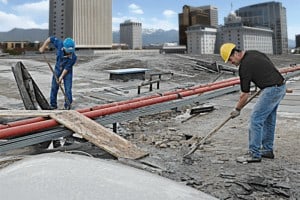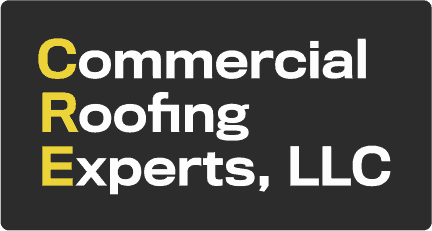Commercial Roofing
Single Ply Systems
Assuming that you have decided a Single Ply roofing system is the way to go, you now need to determine which system is best for you. The following is a list of Single Ply systems which Commercial Roofing Experts, LLC installs.

• TPO -This is a white thermoplastic membrane ranging in warranty from 15 years to LIMITED LIFETIME. Typical thicknesses are 45 and 60 mil The seams are heat welded and the the typical roll is 10’ wide. The benefits of TPO are thermal reflectivity and head welded seams. TPO has been used in the roofing industry for approximately 20 years
• EPDM -This is a black rubber membrane ranging in warranty form 15 years to LIMITED LIFETIME. Typical thicknesses are 45 and 60 mil. The benefits of EPDM are its proven track record of more than 40 years in the industry and its larger roll widths (up to 50’), thus requiring fewer seams.
• PVC -There are a few membranes that fall into this category. Commercial Roofing Experts, LLC can install all of these membranes. They are similar to TPO but have a little more complicated history. There is no perceivable benefit to PVC over the other membranes. In addition, the PVC’s that have a comparable warranty to the other single ply membranes cost more; for this reason, we typically recommend one of the other membranes.
Whichever system you choose, you can rest assured that we will have an experienced crew on the job to complete the project on time and on budget. The foreman of our flat roof crew has over 20 years of experience and installs only flat roof systems. In addition, we use an automatic welder often referred to as a “walker” to seal all the major seams. Once the project is completed the foreman uses a testing tool to “probe” all of the seams in attempt to find any voids that may develop into a problem years down the road. The voids, if any are found, are then marked and resealed. One the foreman signs off on the job one of the area supervisors inspects the roof. Once both the crew foreman and the area supervisor sign off on the job the manufacturer’s representative will inspect the roof (when applicable) and finally we will inform you, the customer, that we are finished so you can inspect the roof as well.
